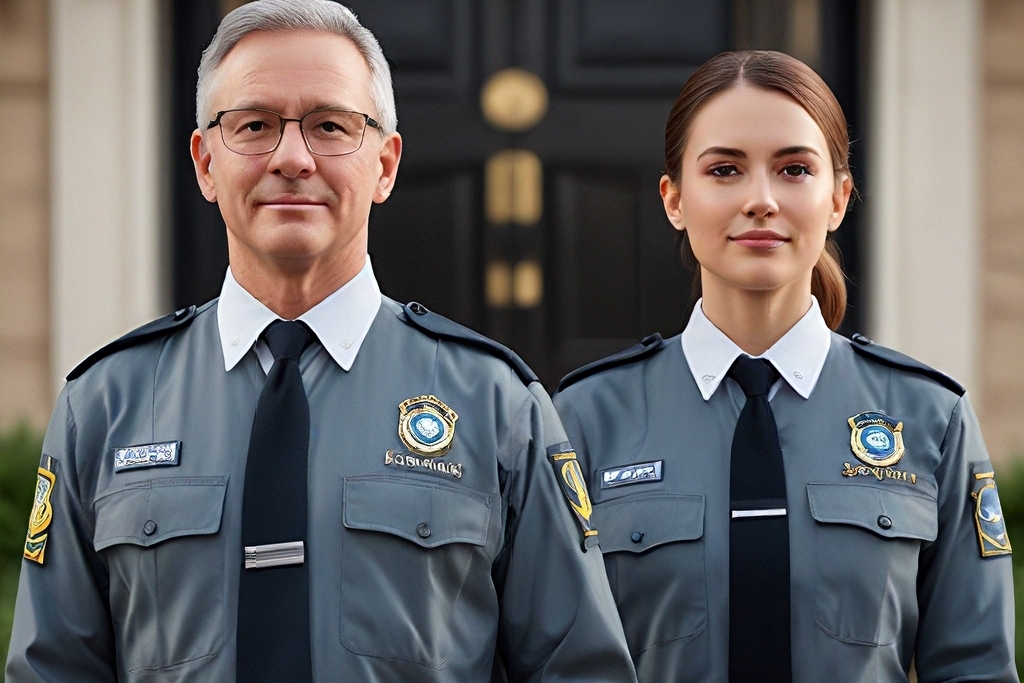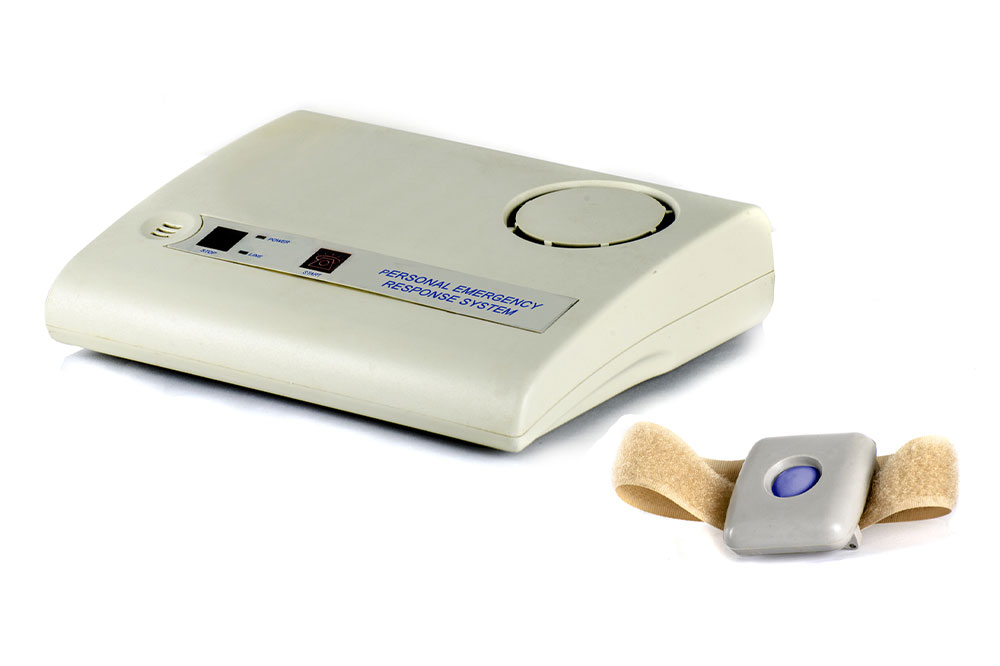Comprehensive Guide to Careers in Security Guard Services: Your Path to a Secure Future
This comprehensive guide offers detailed insights into various career opportunities in security guard services, covering roles such as uniformed officers, armed guards, event security staff, and more. It highlights responsibilities, essential skills, certifications, and growth prospects, providing valuable information for aspiring security professionals seeking a stable and rewarding career in safeguarding assets and ensuring safety across different environments.

Comprehensive Guide to Careers in Security Guard Services: Your Path to a Secure Future
In today's world, security is a top priority across various sectors, including commercial enterprises, residential communities, entertainment venues, and public infrastructure. The role of security guards is crucial in maintaining safety, deterring criminal activities, and ensuring peace of mind for individuals and organizations alike. This comprehensive guide delves into the diverse career opportunities within the security guard industry, exploring different types of security roles, their specific responsibilities, required skills, and the career growth potential available for aspiring security professionals. Whether you’re interested in uniformed patrols, armed security, or specialized event security, this article provides valuable insights to help you make informed career choices.
Understanding the Role of Security Guards
Security guards serve as the frontline in safeguarding individuals, property, and critical assets across multiple environments. Their primary objective is to prevent unlawful activities such as theft, vandalism, and violence while providing a sense of security to the public and property owners. Depending on the deployment setting, their duties can vary significantly, requiring a wide range of skills and certifications to ensure effective performance. The following section provides a detailed overview of their core responsibilities and the environments they operate in.
Core Responsibilities of Security Guards
Security officers are entrusted with diverse duties that may include:
Patrolling designated areas to identify suspicious behavior or security breaches.
Monitoring surveillance systems, such as CCTV cameras, alarm systems, and access control points.
Enforcing safety policies and security procedures to maintain order and safety.
Responding swiftly to emergencies, including fire outbreaks, medical incidents, and unauthorized access.
Detaining suspects or individuals involved in suspicious or unlawful activities until law enforcement arrives.
Preparing detailed incident reports to document security events accurately.
These tasks are executed in settings such as corporate offices, retail stores, healthcare facilities, manufacturing plants, airports, transportation hubs, and gated residential communities. The scope and complexity of duties depend on the security level required by each environment, with high-security facilities demanding more advanced skills and certifications.
Categories of Security Guard Positions
The security industry encompasses various roles, each tailored to specific environments, responsibilities, and risk levels. Here's an in-depth look at the main types of security guard roles, their primary functions, and what they require in terms of skills and certifications:
1. Uniformed Security Officers
These are the most visible and recognizable security personnel, often positioned at the frontlines of security in public-facing roles. Their presence acts as a deterrent to potential offenders and provides assistance and reassurance to the public.
Main Tasks: Patrolling designated areas, enforcing rules, assisting visitors, and managing crowd flow.
Desired Skills: Strong communication skills, conflict resolution abilities, physical fitness, and a professional demeanor.
Certifications Needed: Basic security training, security license as per local regulations, and customer service orientation.
2. Armed Security Officers
Armed security personnel are specially trained to carry firearms, often employed in high-risk environments where the threat level necessitates enhanced protection measures. They handle situations that may escalate to the use of force and are usually deployed in sensitive areas like banks, government facilities, and high-value asset locations.
Main Responsibilities: Protecting valuable assets, responding decisively to threats, and maintaining overall safety.
Key Skills: Proficient firearm handling, crisis management, physical endurance, and tactical judgment.
Certifications Required: State licensing for firearms, firearm safety training, background checks, and ongoing skill refreshers.
3. Event Security Personnel
Specialized security staff are brought in to oversee large gatherings such as concerts, sports events, festivals, and conventions. They focus on crowd control, screening attendees, managing access points, and ensuring the safety of all participants.
Main Tasks: Conducting security checks, managing entry and exit points, handling disturbances, and assisting event staff.
Skills Needed: Vigilance, crowd management, effective communication, and conflict de-escalation skills.
Certifications Needed: Event security training, cardiopulmonary resuscitation (CPR), and first aid certification.
4. Corporate Security Officers
These personnel focus on protecting commercial properties, including office buildings, warehouses, and retail outlets. They monitor access control, supervise security systems, and assist in emergency evacuation procedures.
Key Responsibilities: Managing visitor access, conducting surveillance, responding to security incidents, and assisting employees during emergencies.
Skills: Knowledge of security technology, excellent reporting skills, customer service abilities, and crisis management.
Certifications: Corporate security certifications, familiarity with safety protocols, and sometimes, cybersecurity awareness.
5. Residential Security Officers
This role involves securing private residences, gated communities, and apartment complexes. Officers control entry points, conduct patrols, verify visitor identities, and respond to emergencies within residential settings.
Main Duties: Preventing unauthorized access, monitoring resident activities, and ensuring safety standards are upheld.
Skills: Interpersonal skills, attention to detail, discretion, and emergency response capabilities.
Certifications: Basic security training, CPR or first aid is often preferred, and sometimes specialized residential security courses.
6. Industrial Security Agents
Industrial security professionals focus on safeguarding factories, warehouses, and manufacturing facilities. Their responsibilities include theft deterrence, safety compliance, overseeing equipment, and monitoring hazardous materials.
Main Responsibilities: Access control, surveillance of industrial equipment, ensuring safety protocols are followed, and hazard mitigation.
Skills: Knowledge of industrial safety standards, stamina, vigilance, and technical understanding of plant operations.
Certifications: Specialized training in industrial safety, handling hazardous materials, and compliance standards.
Across all security roles, certain core skills are vital for success. These include vigilance, communication, problem-solving, physical fitness, and customer service. Most security positions require relevant licenses, first aid or CPR certification, and firearm handling for armed roles. Additionally, security professionals often work in shifts, which may be outdoors or indoors, across day and night schedules. Despite the challenges, careers in security offer significant opportunities for growth and specialization in a vibrant industry poised for continued expansion.





